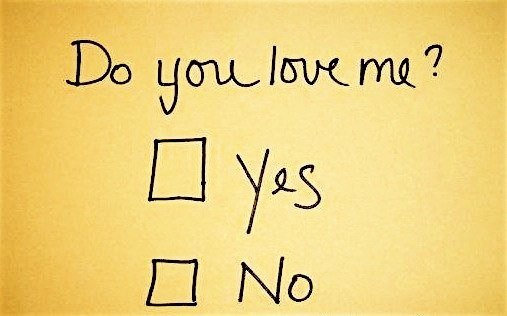
Regular readers of this column know that I have written over and over that love should not be sacrifice. When you love someone, you want them to be happy. When someone loves you in a healthy way, you want them to do things for you because they want to, not because it’s a sacrifice. You want their love for you to give them personal satisfaction — not charity. So why do so many people approach love as if they want it to be sacrifice?
I believe that the most common reason sounds like this: “I’ve sacrificed, so you must do so too. I gave up my happiness for your sake, now you must do the same for me.” Or, worse yet, “I’ve been unhappy, so it’s only fair that you be unhappy, too.” In many cases, people who end up feeling this way in their marriage or relationship didn’t start out that way. So what triggers the change? I find that, for whatever reason, a person does not feel sufficiently loved (or “visible”) in his or her relationship. As a result, the person who feels unloved looks for little tests to demonstrate that he or she is indeed loved. “I want to be sure you really love me. If you do something you hate for my sake, then I’ll know you love me.” This is sad on so many levels.
Once exposed and made conscious, the error is obvious. Feeling unloved by another does not justify sacrifice on their part. Self-sacrifice will not save a romantic connection that you fear is already lost, or perhaps was never there to begin with. You’re either loved or you’re not. If it’s true love, no sacrifice is required. The only requirement is that he or she WANTS to love you.
Over the years, communication in a relationship sometimes breaks down. It’s usually a gradual erosion, and in such cases, it might seem like someone has stopped loving you or takes you for granted. But the fact might indeed be that you’re very much loved and just don’t know it. This is a significant issue that both spouses must address. But demands for sacrifice are not the answer. None of that will give you what you want. So let’s say you put your spouse to the test. “If she really loves me, she’ll do this thing that makes her miserable.” OK, so she does it. But what have you won? You might be satisfied that you are now loved, but you’ve caused him or her a certain degree of unhappiness. What does this say about your love for him or her, and what does it do for the connection you were trying to validate?
Misery loves company. In other words, people who are unhappy sometimes like to find people who feel the same way. In a marriage, this takes the form of bringing your partner’s “happiness level” down to your own. That’s not love! Love is wanting the best for the one you supposedly cherish, even if you cannot have it yourself. So the motive for healthy and rational love is not selflessness; loving someone should make you personally, selfishly happy. And the object of that love will benefit enormously.
Strictly speaking, misery cannot love company. Misery is not love at all. If you’re truly miserable, you cannot love in any kind of coherent way. Romantic love is the highest form of value that there is. And only when you value life and your own happiness can you truly love someone else.
Be sure to “friend” Dr. Hurd on Facebook. Search under “Michael Hurd” (Rehoboth Beach DE). Get up-to-the-minute postings, recommended articles and links, and engage in back-and-forth discussion with Dr. Hurd on topics of interest. Also follow Dr. Hurd on Twitter at @MichaelJHurd1
